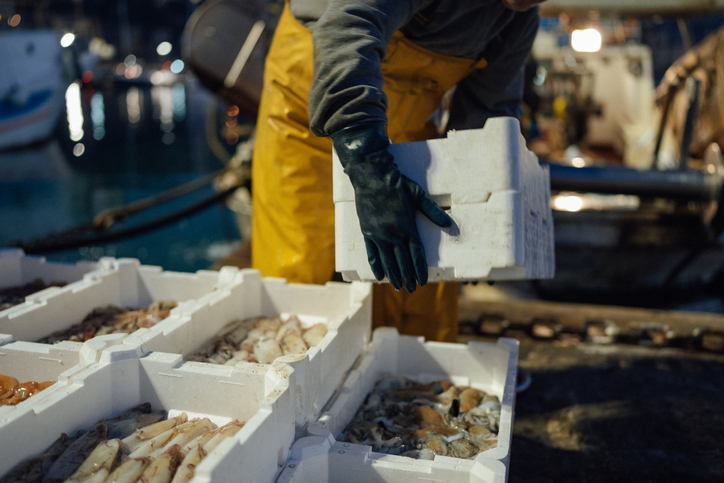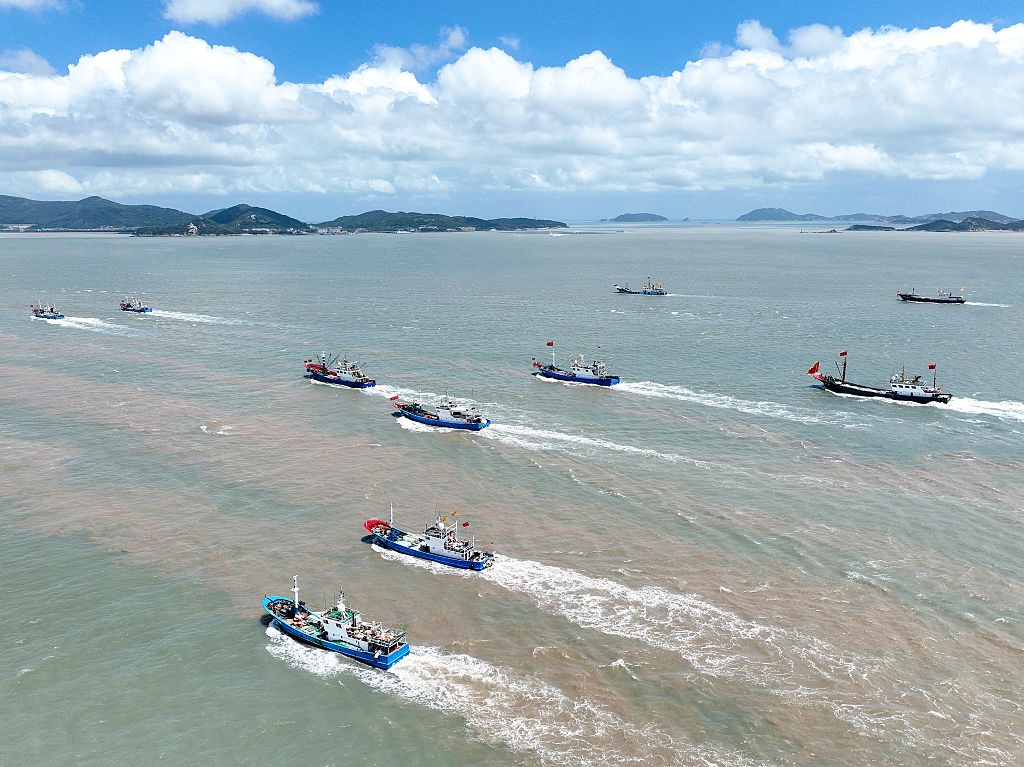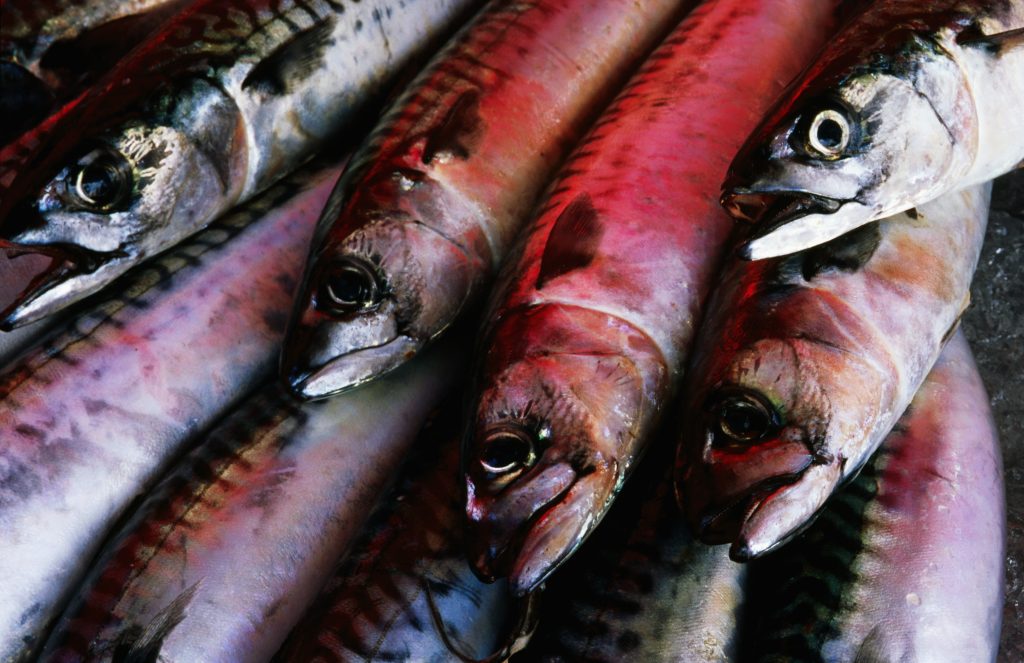Squid: The Unregulated Frontier of Sustainable Fisheries
Unregulated squid fisheries—marked by overfishing, human rights abuses, and ecological risk—pose an urgent global crisis. New tools like the BBNJ Agreement and transparency measures offer political leaders the chance to secure sustainability through decisive action now.

On the global stage, where efforts to sustainably govern fisheries and ocean biodiversity are met with powerful resistance, it is essential to choose priorities carefully. Complex challenges around traceability, transparency, and accountability make sustainable management difficult.
Yet contrary to claims that these issues have slipped off the political agenda, the enthusiastic reception for David Attenborough’s documentary Ocean, and the strong public interest in the UN Ocean Conference in Nice this summer prove otherwise. Public awareness of the need for sustainable ocean management is growing, and citizens want visible action, and one visible and viable target is the squid fishery.
New research released this month by the Environmental Justice Foundation (EJF) notes that the challenges facing the squid fishery globally combine all the key problems of unregulated fishing converge at scale – massive overfishing, human rights abuses, impossible traceability, illegal trade, and elaborate transshipment schemes that allow bad practices to go undetected. The encouraging news is that this fixing these issues is entirely possible solutions are within reach, given sufficient political commitment.
A well-kept secret: squid is actually the world’s biggest fishery
The world’s tuna fishery gets most of the attention, but squid is likely the largest fishery in the world. In 2020, squid accounted for an estimated 4.3% of all marine catches by volume and about 7% by value worldwide. Between 2017 and 2022, squid fisheries averaged 2.8 million tonnes annually, down from a peak of over 3.5 million tonnes in 2014.While scientific data remain sparse, market signals show declining catches globally – clear signs of overfishing and the risk of collapse. This is alarming. Aside from human demand for squid, squid are more importantly a keystone species in marine food webs, feeding sharks, dolphins, seabirds, and major commercial fish stocks such as tuna, swordfish, and hake. Many species also only reproduce once in their lifecycle meaning that it is entirely possible to fish a complete stock before it has had time to replenish the next generation. A full collapse would have cascading effects on ecosystems and ocean biodiversity.
The Argentine shortfin crisis
One squid species faces an immediate crisis. The Argentine shortfin squid (Illex argentinus) is the target of one of the world’s largest single-species fisheries. In the international waters off Argentina, hundreds of vessels—most from China’s distant-water fleet—are massively engaged in a completely unregulated fishery. A collapse here would ripple through the entire Southwest Atlantic food chain. EJF’s study clearly demonstrates such a collapse would be imminent without decisive action.
Unregulated squid fishing also carries grave human costs.
EJF has documented widespread human rights abuses aboard vessels including physical and verbal abuse, labour exploitation through the retention or deduction of identity documents or salaries. Some of the fishers EJF spoke to also reported serious workplace negligence leading to the loss of fingers from frostbite working in the vessel freezer without any kind of protective gear. Indeed, these vessels can remain at sea for years without port calls. Transshipment keeps them supplied and allows catches to be offloaded without any monitoring. This facilitates illegal trade, undermines traceability, and enables impunity for both companies and flag states.
There is also a brutal impact on Argentine fishers operating legally within Argentina’s 200-mile zone. They face increasingly unfair competition and mounting economic damage. Without regulation, there can be no level playing field.
Closing the governance gap
Until now, the absence of practical solutions for managing squid fisheries has left this crisis largely ignored. With no Regional Fisheries Management Organization (RFMO) dedicated to squid, and only two limited conservation initiatives in place, there are no binding harvest strategies or sustainability measures.
That gap is about to narrow. Beginning next year, the new UN Agreement on the Protection of Marine Biological Diversity of Areas Beyond National Jurisdiction (BBNJ Agreement) will provide governments with tools to create area-based management measures, including marine protected areas, in international waters. Such measures could dramatically improve the outlook for squid globally – and provide a real solution to the crisis of the Argentine shortfin.
In addition, without knowing who is catching what, where, when and how, we cannot make progress for a safe, sustainable ocean; we cannot manage what we cannot see. By publishing information like vessel licence lists or the beneficial owners who really profit from the activities of a given vessel, governments can make it much more difficult for those responsible for illegal fishing or human rights abuses to escape unpunished, or to sell their products into global markets.
One vital action for every government to take now is endorsing and implementing the principles of the Global Charter for Transparency, a set of no- or low-cost steps to boost transparency and drive progress towards sustainable, legal and ethical fisheries.
A moment for decisive action
Squid fishing is the last “U” in the well-known IUU trinity: Illegal, Unreported, and Unregulated.
Ending IUU fishing is a core ambition of EU leadership in ocean governance. Under the BBNJ framework conditions now exist to propose a squid-related marine protected area. With strong support from the EU and Latin American signatories reaffirmed in Nice, there is a real opportunity to act.
The EJF study makes the stakes clear: the unregulated plundering of squid in the Southwest Atlantic can no longer be ignored. As a keystone species, Argentine Shortfin (Illex argentinus) should be prioritized in the first wave of marine protected area proposals, setting a precedent for urgently needed sustainable ocean management.
The tools exist. The political momentum is building. What remains is the will to act. It’s time to start managing the massive global squid fishery—with the Argentine shortfin being the most urgent immediate focus.
Ryan Orgera & Steven Adolf









